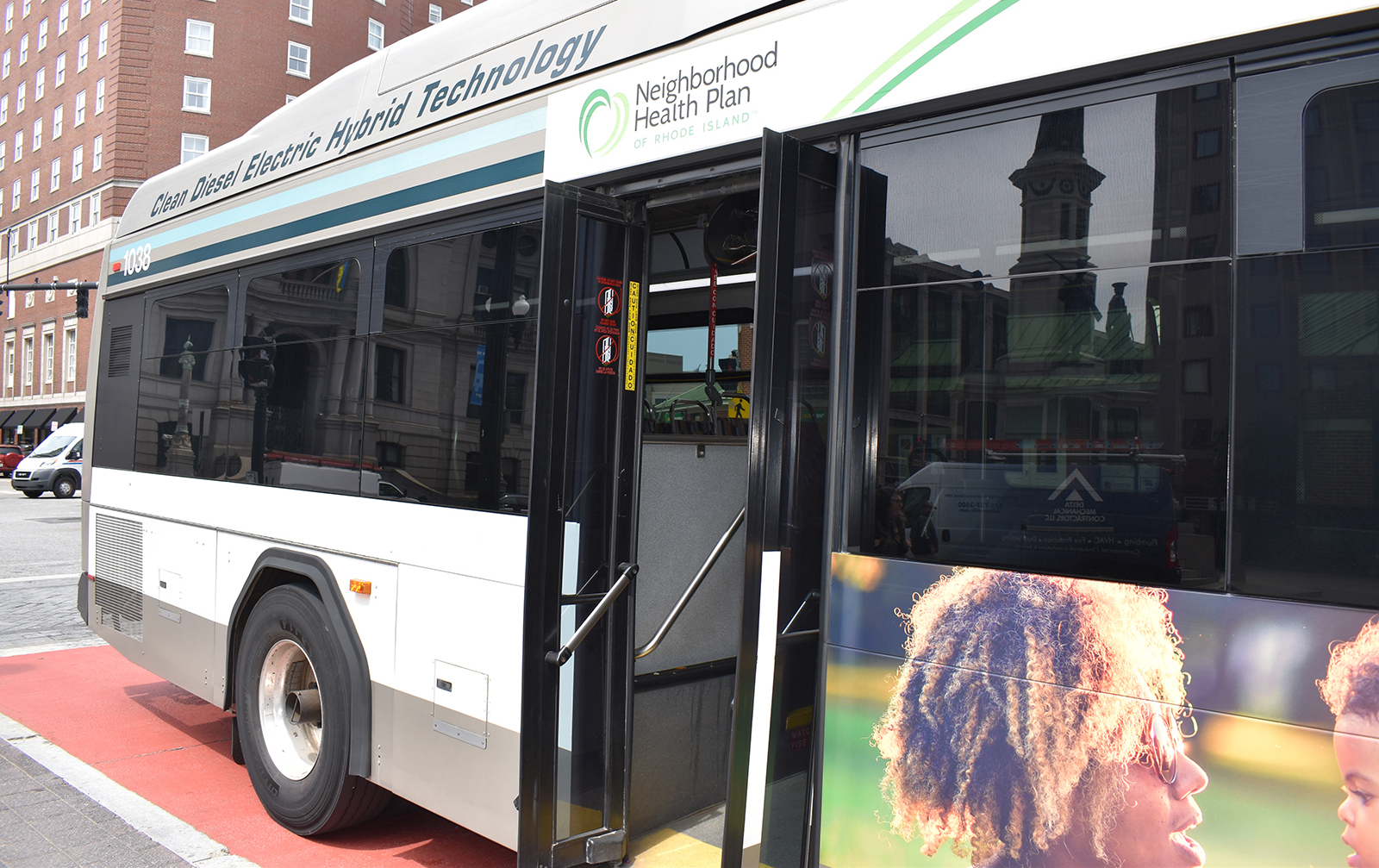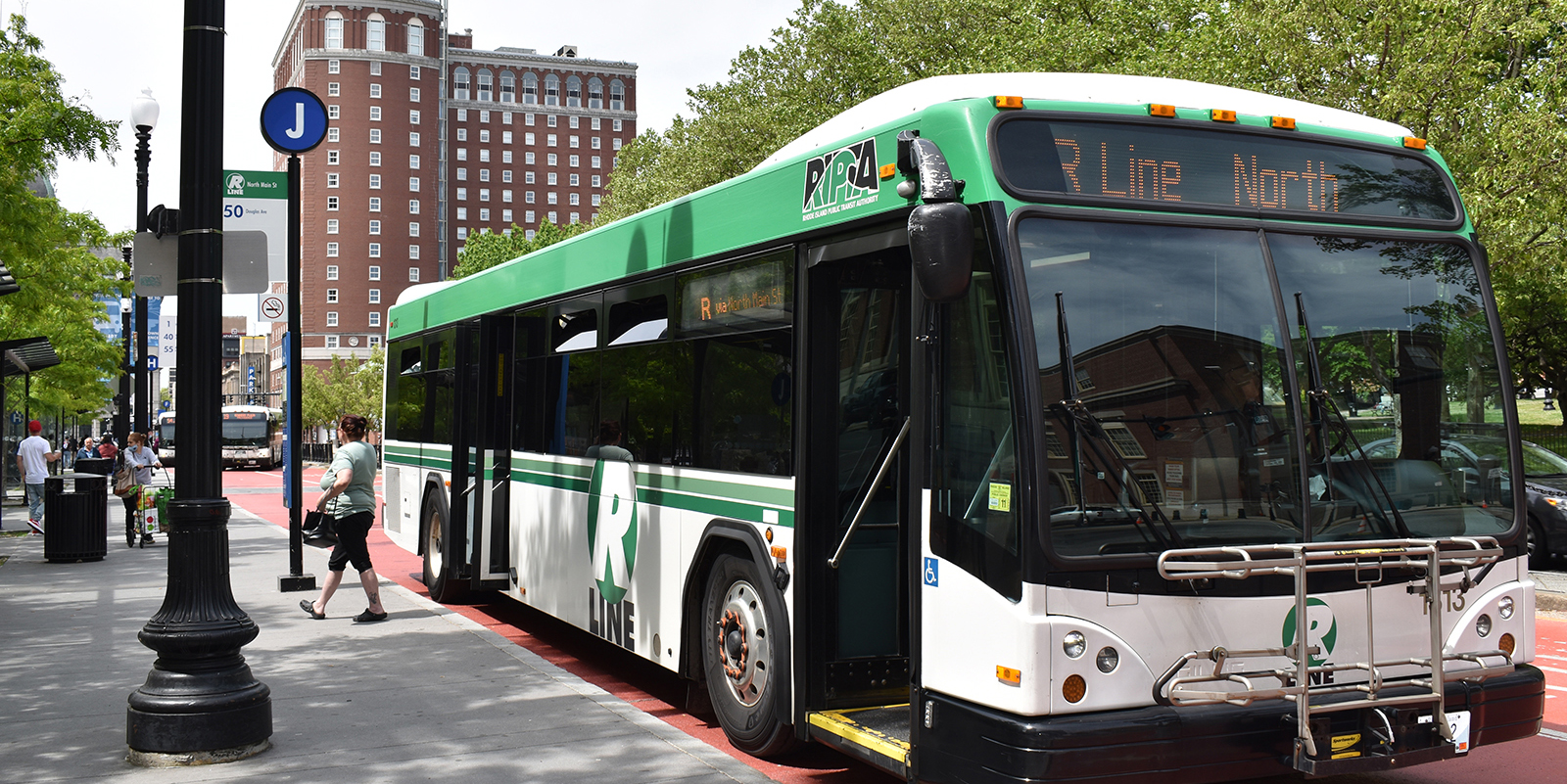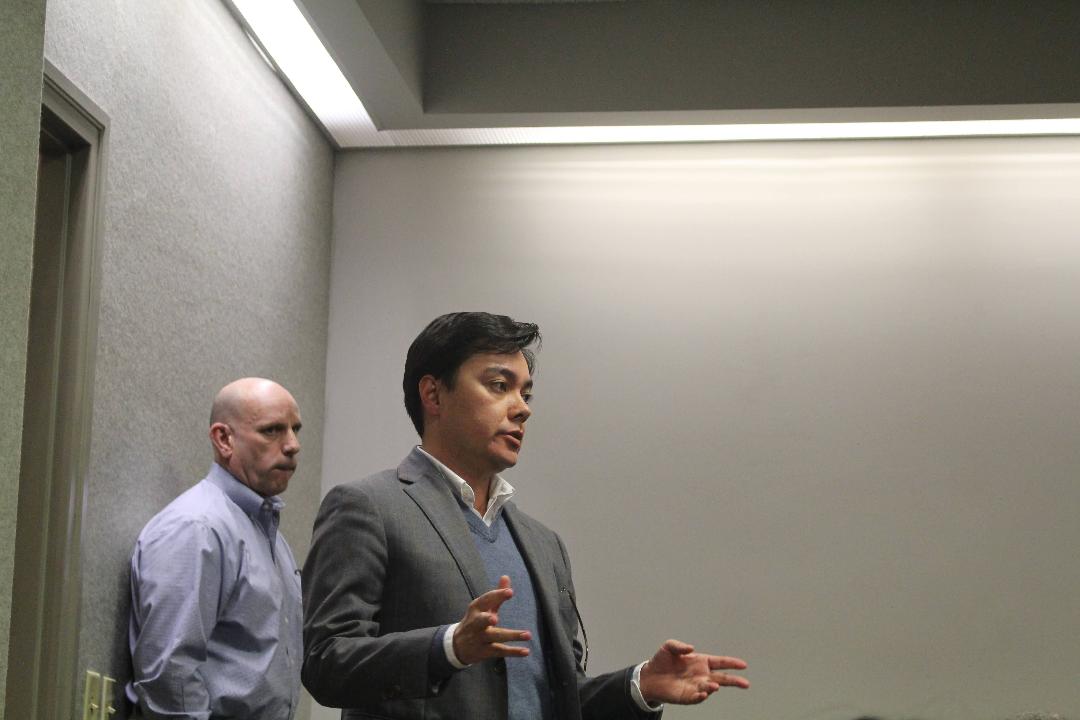Fewer Stops=More Efficient RIPTA Service
June 10, 2013
PROVIDENCE — Scott Avedisian, Rhode Island Public Transit Authority (RIPTA) board chair and Warwick mayor, said the agency has an inordinate number of bus stops. Speaking during a RIPTA June 10 press event organized to promote new transit enhancements, Avedisian said the statewide bus service will remove and move bus stops in order to make the public transit system more effective and efficient.
The rider experience will be improved because the amount of time spent riding the bus will be reduced since buses will stop less often, according to Avedisian.
The R-Line, a rapid bus route designed to alleviate congested local service on Broad Street and North Main Street, was another enhancement highlighted by Avedisian. This limited-service, high-frequency bus route will serve key passenger destinations while bypassing less frequently used stops. The new line, running from Central Falls to the border of Providence/Cranston, will be available this winter.
The Automated Transit Management System (ATMS) also will be in place by this winter, according to Avedisian. He said ATMS will better inform both riders and those waiting for buses. While waiting for a bus, the system will allow riders to text bus stop-specific codes to RIPTA and receive return texts with information about when their buses will arrive. While riding the bus, ATMS will announce upcoming stops and transfer opportunities to riders.
Avedisian also said that the roof-top solar panel installation at the agency’s transportation building, 269 Melrose St., will be completed this summer. The installation is expected to save RIPTA $30,000 annually, he said.
Mayor Angel Taveras also spoke at the event, held at Burnside Park across from Kennedy Plaza, the state’s public transit hub. He said RITPA and the city have jointly applied for a TIGER grant from the U.S. Department of Transportation to help kick-start a local streetcar project. The streetcar would run from College Hill to upper South Providence. The grant would cover $20 million of the $130 million price tag.
Scott Wolf, executive director of Grow Smart Rhode Island, called for passage of the “O’Grady Bill” before the current General Assembly session ends. The bill would help fix RIPTA’s annual funding problem, he said.
Wolf said Rhode Island should be the easiest state to travel within by public transportation because of its small size and compact development patterns.
“Let’s ensure transit remains a top priority for our state,” he said. “It is critical to our economic stability and quality of life.”
Marilyn Strickland, the mayor of Tacoma, Wash., was the event’s keynote speaker. Both Strickland and Avedisian serve on the Smart Growth America’s Local Leaders Council Advisory Board, a 22 member group of municipal leaders committed to advancing smart-growth principals.
“Public Transit is a worthwhile investment,” said Strickland, who noted that Tacoma’s “excellent” public transit system helps the city attract businesses. “Transportation does help economic development.”
Tacoma, like Providence, is a port city with about 200,000 people and an industrial history. Tacoma transit system utilizes buses, street cars and light rail.
Categories
Join the Discussion
View CommentsRecent Comments
Leave a Reply
Your support keeps our reporters on the environmental beat.
Reader support is at the core of our nonprofit news model. Together, we can keep the environment in the headlines.
We use cookies to improve your experience and deliver personalized content. View Cookie Settings




Removing some bus stops can speed trips which is a good thing, but there is a tradeoff of more walking required to get to bus stops further apart. Ths can be no problem for many, but problematic for some elderly, folks with a disability, for those with heavy packages, or in bad weather, especially if sidewalks are icy or snow covered – not unusual in winter as snow-removal ordinances are often not enforced. I had suggested allowing (but not requiring) drivers to make "courtesy stops" where passengers can get off at more convenient locations, even if not an official stop, also useful if security is a concern – (think of having to get off and walk 2 extra blocks in some neighborhood after dark because your stop was eleiminated) This wouldn't work for getting on the bus. But I was told transit systems don't allow this even for those getting off. (It might not even slow the trip since they would have to get off somewhere anyway.